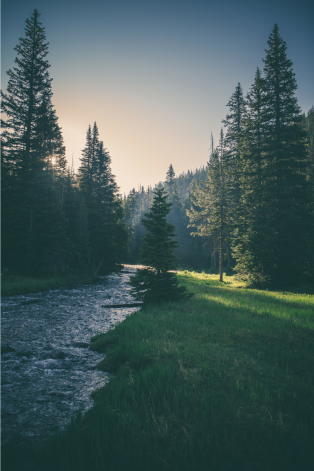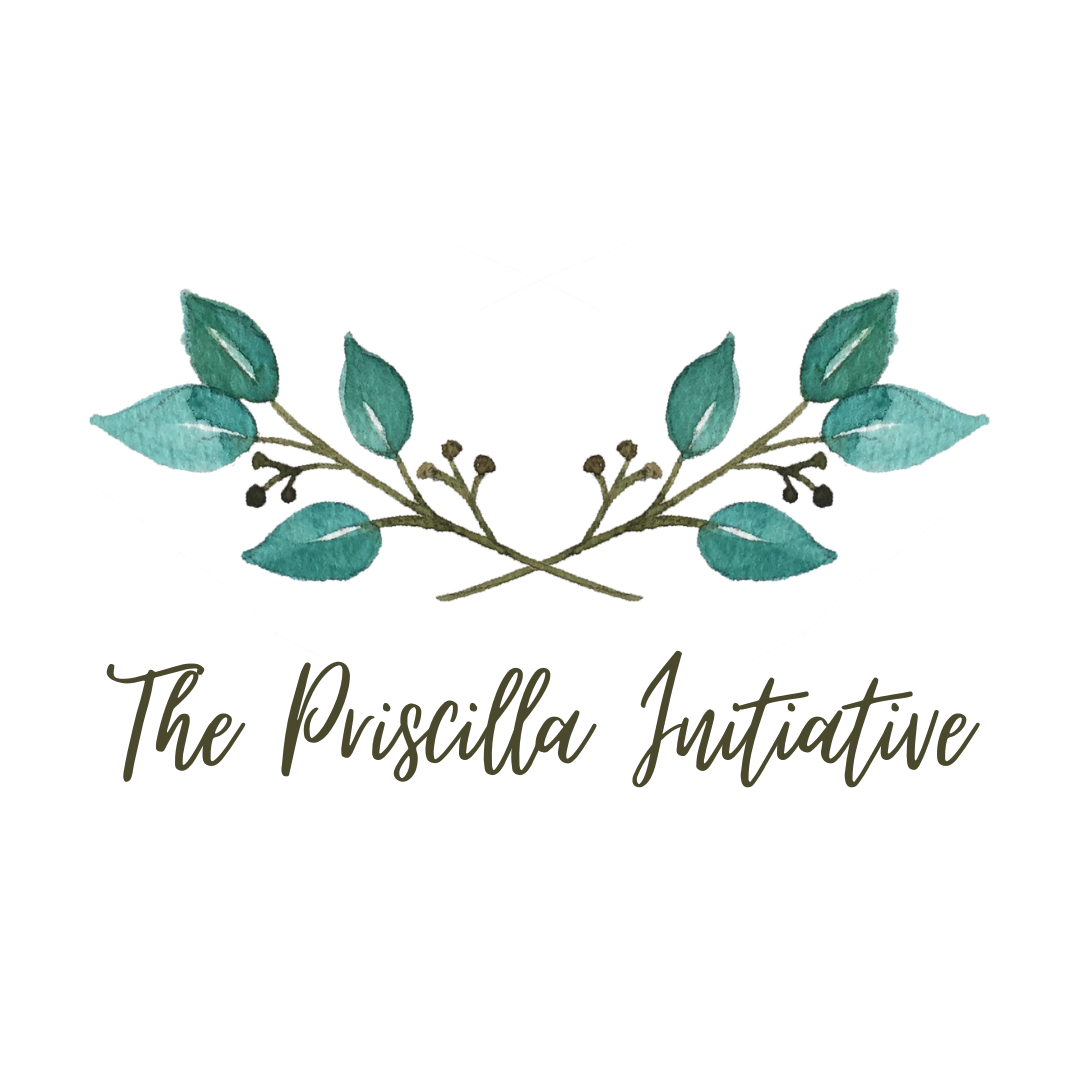Almost a year ago to date, I found myself walking up the steps to my childhood church to celebrate with a newly-engaged friend. Years since my last visit, it still felt like coming home; this place that was once my second-home during my youth.
My heart was weary from the stress of life. A mess of postpartum hormones and an undiagnosed thyroid disease had me anxiety-ridden and tired. All the moves of the past few years had left me feeling friendless. And all the dreams God had stripped away left me feeling aimless.
I remember distinctly feeling like maybe God didn’t care, didn’t want me, and didn’t even love me.
Psalm 42

As the deer pants for streams of water, so my soul pants for you, O God. My soul thirsts for God, for the living God. When can I go and meet with God?
My tears have been my food day and night, while men say to me all day long, “Where is your God?” These things I remember as I pour out my soul: how I used to go with the multitude, leading the procession to the house of God, with shouts of joy and thanksgiving among the festive throng.
Why are you downcast, O my soul? Why so disturbed within me? Put your hope in God, for yet I will praise him, my Savior and my God.
My soul is downcast within me; therefore I will remember you from the land of the Jordan, the heights of Hermon- from Mount Mizar. Deep calls to deep in the roar of your waterfalls; all your waves and breakers have swept over me.
By day the Lord directs his love, at night his song is with me- a prayer to the God of my life. I say to God my Rock, “Why have you forgotten me? Why must I go about mourning, oppressed by the enemy?” My bones suffer mortal agony as my foes taunt me, saying to me all day long, “Where is your God?”
Why are you downcast, O my soul? Why so disturbed within me? Put your hope in God, for I will yet praise him, my Savior and my God.
 A beautiful work of poetry. Many of you have perhaps even sung the chorus, “As the deer panteth for the water, so my soul longeth after thee…” I inevitably begin humming its tune every time I read this hymn.
A beautiful work of poetry. Many of you have perhaps even sung the chorus, “As the deer panteth for the water, so my soul longeth after thee…” I inevitably begin humming its tune every time I read this hymn.
The state of man really wasn’t so different then as it is now.
The authors of Psalm 42, the sons of Korah, were the temple musicians, the worship leaders of the day if you will. They penned this Psalm of lament while their people (the Israelites) lived in exile, in Babylonian captivity.
It was written out of a place of despair and longing for the presence of God.
Like we so often encounter in our lives, they found themselves in a place of utter discouragement, longing for the days when their Israelite community was intact, when they were still in their Promised Land. They were forcibly removed from their hometown, their temple (place of worship) was burned and they were made slaves (2 Chronicles 36). Instead of living in the Promised Land among their fellow Israelites, they were enslaved in a foreign land of idol worshipers.

These writers were not so different from us, and very likely had it worse than most of us reading this. That being said, let’s examine what we can learn from them.
-
Genuine relationship with God
They didn’t feel the need to ignore the devastation they were experiencing. Instead they wrote, “my tears have been my food day and night,” “my soul is downcast within me,” and “my bones suffer mortal agony.” They weren’t afraid to paint of picture of just how depressed they felt. They even expressed their feeling of abandonment by God: “I say to my God, ‘Why have you forgotten me?’” These were raw, powerful emotions they experienced but they had this relationship where they could lay them before God.
-
Remembering as a source of encouragement
Instead of just dwelling on their current situation, they reflected on when things were good. Verse 4: “These things I remember as I pour out my soul: how I used to go with the multitude…with shouts of joy and thanksgiving.” And again in verse 6: “My soul is downcast within me; therefore I will remember…” Emphasis on the therefore. Oh how much more we need to remember the goodness of God while in the valley of the shadow of death! Knowing the state they are in, they make it a point to remember God’s prior faithfulness and their times of blessing.
-
A confession of trust
They did not wait for God to answer their prayers to trust him. They didn’t even require a word or promise of future salvation from the Lord before their declaration. No. Instead they write,
“Why are you downcast, O my soul?
Why so disturbed within me?
Put your hope in God,
for I will yet praise him,
my Savior and my God.”
In other words, “God, my current state is complete despair, but despite my situation and my emotions, I will put my hope in you and will praise you!” Oh that we could have that mindset more often, for “faith is being sure of what we hope for and certain of what we do not see.”
“Faith is being sure of what we hope for and certain of what we do not see” Hebrews 11:1
Though they could not yet see it, God had already set in motion a plan of salvation for his people, both for their current captivity (they will be released after 70s years by Cyrus, king of Persia) and for eternal salvation (sending Jesus Christ, his son).
-
Don’t become like the Samaritans
These authors held on to their faith in the land of exile, but not all Israelites did. In the New Testament, we hear about a people group called the Samaritans- the Samaritan woman at the well (John 4:1-26), the parable of the good Samaritan (Luke 10:25-37). This people group sprung up from the Israelites who never returned to Jerusalem.
it can also be a place where faith is lost if we aren’t careful
After living in Babylon for so many years, these Israelites began to adopt the culture, blended in the pagan worship and intermarried. They still had a belief in God, but it was distorted by the culture they’d allowed to become their way of life. Hear me, dear friends, when I say how easy it can be to throw up your hands and forget the truths of our God when in this place of exile. It can be a great time for growth and a deepening of your faith, but it can also be a place where faith is lost if we aren’t careful.

As I sat in my childhood church last year, no one knowing the broken state of my heart and the doubts swirling in my mind, the worship team began to play a song I had never heard before. They began to sing the words to Good Good Father, and it felt like they were being sung just for me:
I’ve heard a thousand stories of what they think you’re like
But I’ve heard the tender whispers of love in the dead of night.
And you tell me that you’re pleased. And that I’m never alone.
By the time they reached the chorus, tears were welling up in my eyes:
You’re a good good father. It’s who you are, it’s who you are.
And I am loved by you. It’s who I am, it’s who I am.
I am loved by you. It’s who I am.
And in that moment, God responded to the nagging doubts that had been pricking at my mind and he whispered, “I know you. I love you. I want you.” That became my moment of letting go, of putting my hope in God, of determining to praise him despite the place in which I found myself.
The song then closes with these sweet lines:
Oh, it’s love so undeniable,
I can hardly speak.
Peace so unexplainable,
I can hardly think.
As you call me deeper still,
Into love, love, love.
Oh precious peace. My prayer is that you can find that today. It may seem easy for me to look back a year later and reflect on trusting God during what is now a relatively happy season, where God has graciously provided me with my new community and given me a season of rest. But the reality is that there were a couple of long, hard years of exile for me and God had to shape in me that ability to put my hope in him despite my circumstances.
“Come to me, all you who are weary and burdened, and I will give you rest. Take my yoke upon you and learn from me, for I am gentle and humble in heart, and you will find rest for your souls. For my yoke is easy and my burden is light.” Matthew 11:28-30
So I offer this encouragement to you: our Good Father does not leave us alone in our brokenness. He knows this life is hard and that it comes with times of exile. But he is always there to carry our burdens and he so badly wants to remind us that we are loved, chosen, precious children.
Dear friends, if you find yourself in that land of exile today, hold on! Put your hope in God and press into him for your peace. Weeping may last for the night, but joy comes in the morning (Psalm 30:5).


I can’t tell you how much I love this! 😁 Rita
LikeLiked by 1 person
Love this post, Renee. It brought back lots of memories of my difficult times when Jim and I and the boys first moved here. It was a rough 2 years or do. Like you, God saw us through, too. Your song at the end was beautiful!
LikeLiked by 1 person
Renee,
Your an amazing women . Your writing is touching and I felt your heart
God has blessed you with talent with writing and your voice
Thank you and God Bless You
LikeLiked by 1 person
Hi Renee, this is so beautiful! Thank you for bringing the Psalm to light. I don’t always get poetry and you explained it and applied it to real life. Thank you for being genuine and really helping me through my “place of exile”
– love, Mandy
LikeLike